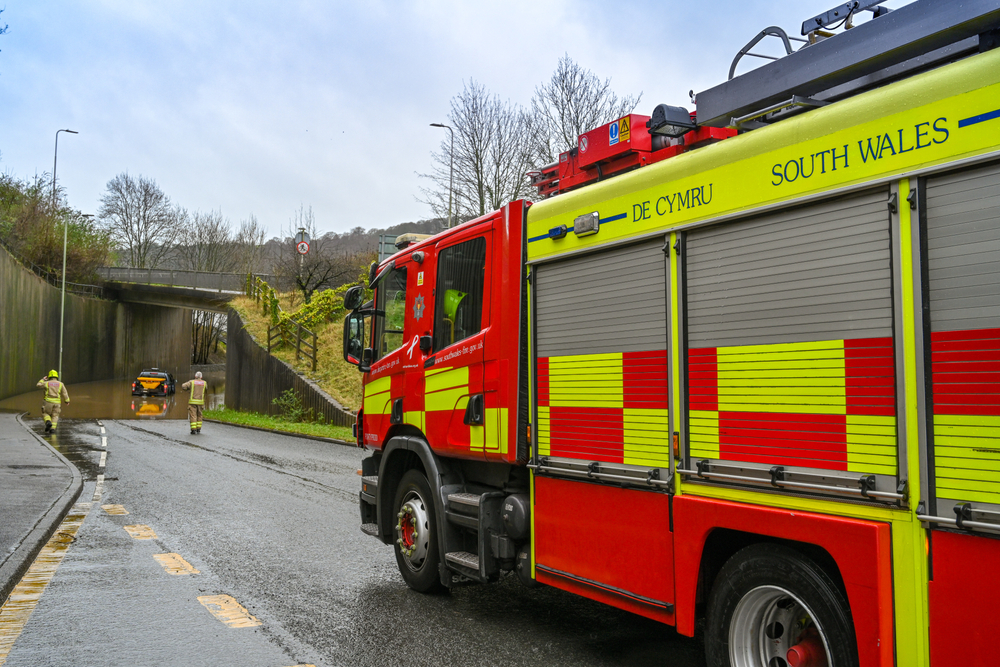The impact on public trust and safety of harassment in the fire service
- January 10, 2024
- 11:52 am


Iain Hoey
Share this content
A closer look at South Wales fire service harassment
The South Wales Fire Service has come under intense scrutiny following a comprehensive report revealing a disturbing culture of harassment, abuse, and discrimination within its ranks.
This alarming situation raises significant concerns about the impact on public trust and safety in emergency services.
Damning revelations: Culture and conduct in the spotlight
A recent independent review of the South Wales Fire and Rescue Service, triggered by ITV News investigations, has unearthed troubling findings.
Almost a third of survey respondents reported experiencing inappropriate behaviour at work, with instances of sexual harassment, domestic abuse, and racist abuse being particularly prevalent.
The report highlighted a “boys’ club” mentality among senior management, a culture of misogyny, and nepotism, severely damaging the service’s reputation and the trust it relies upon.
Chief Fire Officer Huw Jakeway, acknowledging the gravity of the situation, announced his retirement, stating: “For those who have had negative experiences of the service, I am profoundly sorry.
“There is no place for inappropriate behaviour within South Wales Fire and Rescue Service.”
The broader impact on public trust and safety
The findings from South Wales mirror similar issues in other fire services, notably the London Fire Brigade.
This pattern of behaviour in such crucial public services deeply undermines public trust.
It raises questions about the safety and well-being of both staff and the public they serve.
Trust erosion: A critical concern
Public trust is the cornerstone of effective emergency services.
However, when service members engage in discriminatory and abusive behaviour, it erodes this trust.
The community’s confidence in these services to provide safe, unbiased, and respectful assistance in times of need is fundamental.
Such incidents of harassment and abuse shatter this confidence, potentially deterring individuals from seeking help or reporting emergencies.
Safety at stake
The safety implications are numerous.
Victims of harassment within the service may be less effective in their roles, potentially compromising operational efficiency.
More broadly, if the public perceives the service as an unsafe or discriminatory environment, it could deter individuals from pursuing careers in these essential roles, leading to a less diverse and inclusive workforce.
This lack of diversity can have real-world consequences, as a homogenous workforce may lack the range of perspectives and approaches needed to effectively serve a diverse community.
The need for systemic change
The Welsh Government’s Deputy Minister for Social Partnership, Hannah Blythyn, has emphasised the need for systemic change.
She said: “I am ruling nothing out in terms of Welsh Government support, direction or intervention in the South Wales Fire and Rescue service, we cannot access this level of discrimination and mismanagement.”
This statement underscores the government’s commitment to addressing these deep-seated issues.
IFSJ Comment
The revelations about the South Wales Fire Service highlight a critical issue that goes beyond individual misconduct to reflect systemic problems within certain emergency services.
These findings serve as a wake-up call, not just for South Wales but for fire services globally, to re-evaluate their internal cultures and practices.
It is imperative for these services to foster an environment of respect, equality, and professionalism to rebuild public trust and ensure safety for all.
The path forward involves comprehensive training, stringent accountability measures, and a commitment to cultural change.
Only then can these services truly fulfil their mission of protecting and serving the community effectively and equitably.



